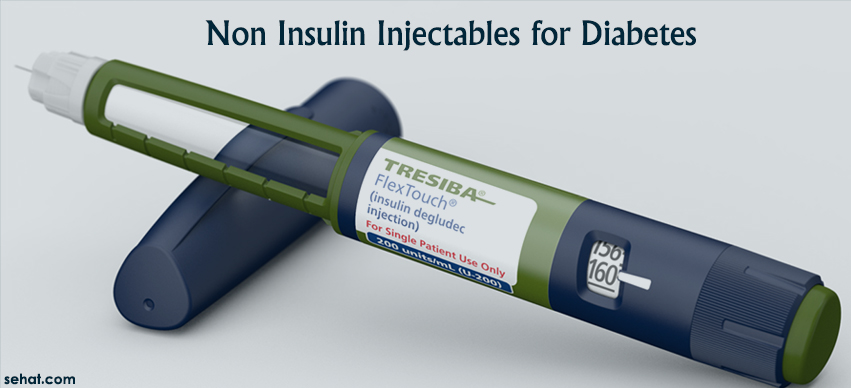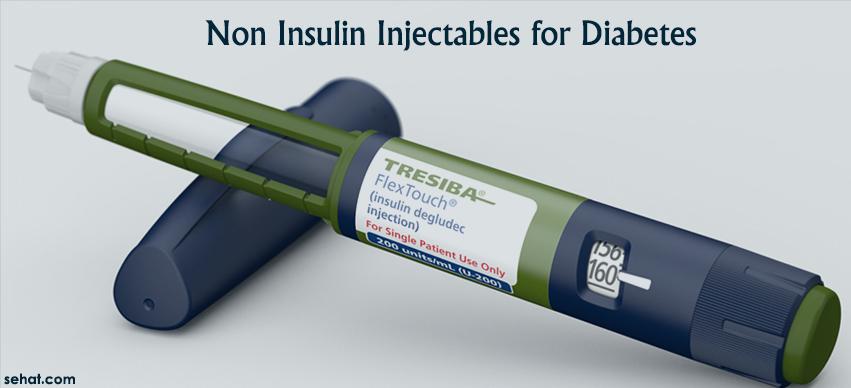Nanoparticle Therapy – An Emerging Cancer Treatment
5 Min Read


Diabetes is spreading like an epidemic in the world. Innumerable factors are contributing to the problem, making conditions serious and grave. Diabetes, type II is the most dangerous kind of diabetes that is reported. In fact, people suffering from this kind of diabetes need to make various kinds of lifestyle changes and adjustments for staying healthy. Along with taking regular medications for combating the problem, there are restrictions on the diet. The doctor also recommends indulging in physical activities and to keep stress levels down as much as possible. But inspite of the changes, not much improvement in blood sugar levels can be seen. When everything else fails, the doctor might recommend taking non-insulin injectables.
There are 2 kinds of diabetes – type 1, which is also known as ‘insulin-dependent’ diabetes and type 2, which is also known as ‘non-insulin dependent’ diabetes. People who suffer from type 1 diabetes are unable to produce insulin naturally in their body. The dose of insulin required reaches the body through insulin injections. However, for patients with type 2 diabetes, the scenario is little different. In such patients, either the amount of insulin produced by the pancreas is not enough for the body or the body is unable to utilize the produced insulin properly.
Generally, people suffering from type II diabetes are recommended oral pills initially so that the body is able to produce and utilize insulin effectively. But it was seen that diabetes could not be controlled always with the pills. So, doctors started recommending insulin. Since insulin has some side effects, this was not prescribed until and unless there is no other way left. With lots of research and development, injectable non-insulin drugs were made, which were not insulin, but they had more effectiveness when compared to the oral pills.
There are 2 kinds of non-insulin injectables available and they work in different manners. One is glucagon-like-peptide-1 (GLP-1) agonists and the other is an amylin analog. The GLP-1 medications are sold in different ways, includingliraglutide (Victoza), exenatide (Byetta and Bydureon), albiglutide (Tanzeum), dulaglutide (Trulicity) and lixisenatide (Adlyxin). These medications help in stimulating the pancreas so that more insulin can be produced. Moreover, the speed in which the liver produces glucose also slows down considerably with these medications.
The amylin analog, which is available as pramlintide (Symlin), helps in slowing down the process of emptying the stomach. Therefore, it takes long time for the food to be digested in the body. When the body carries out the work of digesting food, blood sugar level in the body rises. When the process of digestion is slow in the body, chances of high levels of blood sugar are minimized.
There are many diabetic patients, who are more comfortable in taking pills for keeping their blood sugar levels under control. Initially they might have various kinds of notions and inhibitions in their minds regarding taking injections instead of taking pills for diabetes and might be hesitant in trying a new thing altogether. However, people who have tried the non-insulin injectables, opine that these injections act like a bridge connecting insulin and the pills. It is interesting to see that non-insulin injectables have many advantages over traditional insulin injections. Mentioned below are some of them:
Insulin takers need to keep different kinds of calculations in mind so that the right dosage is taken. The dose of insulin varies depending on many factors. Factors like what the patient has eaten, other illnesses, the extent of physical exercise done or being planned to be done etc need to be taken into consideration for adjusting the insulin dose. Patients, who have been taking insulin for long, develop a sense of the dosage on their own. In non-insulin injectables, the dosage remains the same until and unless the endocrinologist changes the same.
Though the non-insulin injectable is not meant for weight loss; many patients suffering from type-2 diabetes have reported weight loss with non-insulin injectables. Obese people might gain from this.
Insulin needs to be taken once or twice a day or even more frequently depending upon the need of the patient. However, the non-insulin injectable might be needed just once a day. With medical advancements, many such injectables are available, which act for long periods and these might need injection once in a week.
For more information on injectables for diabetes or to find the right doctor to treat and guide you on diabetes management, sehat provides you with the list of best diabetologists in Hyderabad or the city you live in.